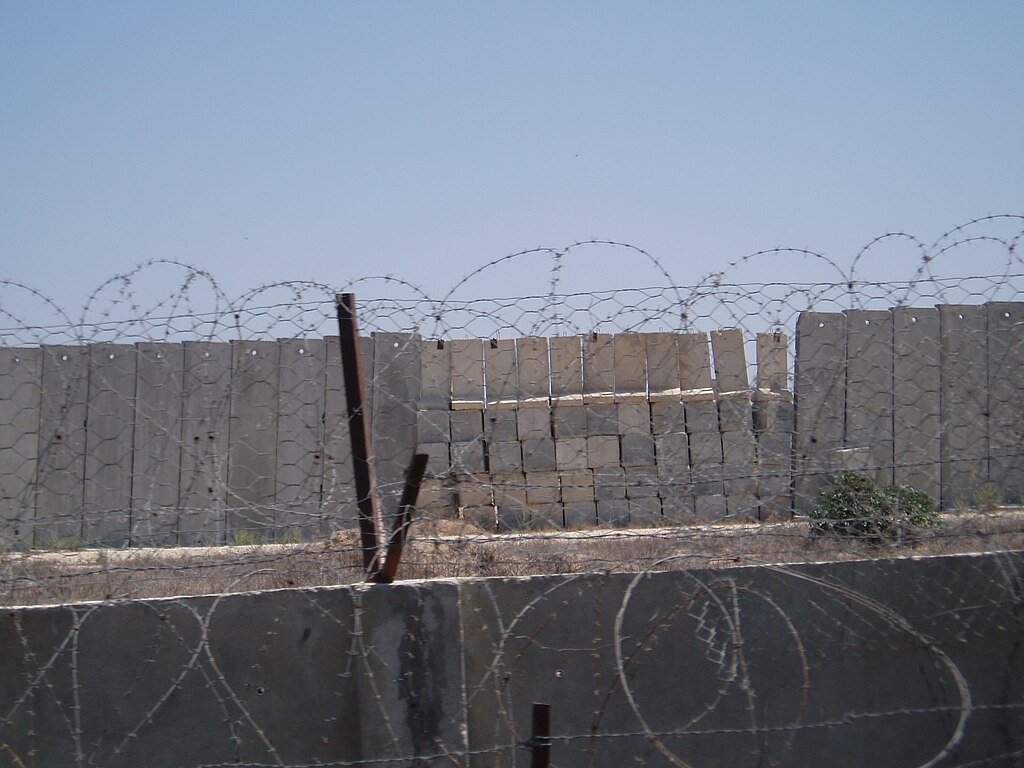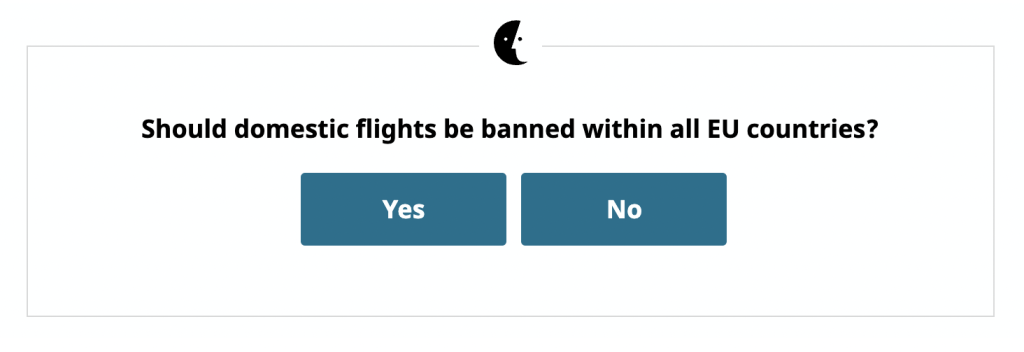Created in 2010, the Freedom Flotilla Coalition (FFC) is an international grassroots solidarity movement working to end the Israeli blockade of Gaza. Their new mission – to deliver 5,500 tons of humanitarian aid to the people of Gaza – has been temporarily halted after Guinea Bissau decided to remove its flag from two vessels on 24 April 2024. The flotilla had been set to sail from Turkey towards Gaza.
During a previous FFC mission in 2010, ten people were killed following an intervention by Israeli armed forces. This time, several hundred people from around thirty different countries are participating in the mission, including Belgian activist Rosy. A member of the No Border movement, opposing the existence of borders and advocating for freedom of movement, she analyses the numerous links between the situation in Palestine and that at the borders of the European Union. Rosy did not wish to disclose her full name so as not to compromise her safety.
Francesca Spinelli: Could you tell us about your activist background and what encounters or experiences led you to take part in the FFC mission?
I’ve been an activist on the issue of borders and migration for years, mainly in Belgium, but also at various borders in Europe, including Greece and Bosnia. I’m also involved in a campaign launched a few years ago, Abolish Frontex, which brings together many different movements. More recently, I’ve been in the Mediterranean Sea through rescue NGOs. It was through this latter network, which connects activism and work at sea, that I heard about the Freedom Flotilla Coalition mission. It made a lot of sense for me to participate in this operation, not only because the sea can also be a means of liberation and political action, but because I wanted to connect the struggle against state borders and violence at European borders to the struggle in support of the Palestinian people.
Francesca Spinelli: There are many similarities between what is happening in Palestine and the situation at the EU’s external borders. Let’s start with the most visible aspect: violence.
The violence perpetrated by certain states against certain categories of civilians – Palestinians on one hand, and migrants on the other – is increasingly high, and these states are increasingly taking full responsibility for it. The narrative is very similar: dehumanising the other, normalising hate speech, all to justify violence. A binary vision is created: Israel against the Palestinians, or rather against Hamas, as if all Palestinians were members of Hamas. Reality is simplified by presenting people as homogeneous masses: the “migrants” invading Europe and attacking “European identity.” The flip side of dehumanising discourses is identity discourses advocating the superiority of certain cultures, certain people. If some lives are deemed more valuable than others, it grants a free pass to all forms of violence. This is what happened in Europe during World War II, and before that during colonialism, the effects of which are still visible today. As for Israel, it’s been a colonialist project from its inception. The violence we observe today doesn’t arise out of nowhere; it cannot be understood or fought against from an ahistorical perspective.
Francesca Spinelli: When we talk about violence, we’re talking about weapons.
Yes, and here too, there’s a common thread linking Israel to the EU: the military-industrial complex. Violence at the borders and in Gaza is carried out within the framework of increasing militarisation, using cutting-edge technology, all to the benefit of European and Israeli companies. The Database of Israeli Military and Security Exports (DIMSE) shows the extent of Israeli exports to the EU in this field. Conversely, there are numerous European companies that supply arms to Israel. In recent months, there has been a growing call to end arms sales to Israel, along with direct actions by activists targeting these companies. In France and Germany, legal actions have been initiated by lawyers and NGOs.
Francesca Spinelli: The Israeli arms industry is particularly favoured by Frontex, the European Border and Coast Guard Agency. Can you tell us more about this?
Since its establishment in 2004, Frontex has contributed to the militarisation of the EU’s external borders. Mandated by European governments, it promotes a securitised view of migration, portraying migrants as a threat that Europe needs to defend against. A portion of its enormous budget (it’s the most funded European agency, with €845.4 million euros in 2023) is used to purchase weapons and surveillance technologies, including from Israeli companies, as highlighted by journalists and researchers. It’s also worth noting that some technologies are tested on the population of Gaza before being sold abroad, particularly to European countries and Frontex. And the latter will first test these technologies at the borders before using them on the whole population. This applies to surveillance technologies, such as drones or data extraction technologies. What we observe in Gaza, at EU external borders, and increasingly on EU territory, is a policy of ultra-surveillance and ultra-control, driven by the desire to know in detail the identity, profile, and movements of each person, and to classify people as desirable or undesirable.
Francesca Spinelli: Another similarity between the two contexts we are analysing, and it is also one of the major political issues today, is precisely this desire to control the movements of certain categories of people.
Yes, the siege of Gaza, the act of confining people and preventing them from controlling their own lives and movements, is exactly what European governments are attempting to impose on migrants by denying them access to EU territory or detaining them while awaiting deportation. They share the same vision: the global population is divided based on where one is born. The right to move or to stay, the right to dignity and life, are determined by place of birth. This link established between nationality and the right to entry, a right governed by the visa system, is inherently colonialist. Thus, walls have become a symbol of the confinement of Palestinians in Gaza, but also of EU migration policies. It’s crucial to emphasise that these barriers, which continue to multiply, are not just physical. There are administrative barriers, laws, and provisions whose sole purpose is to prevent people from living with dignity.

Gaza border wall. Image by Rob Pierson via Wikimedia Commons
Francesca Spinelli: As we were saying, these policies of confinement and exclusion are based on the idea that some lives are worth less than others. Fundamental rights, theoretically universal, are increasingly violated by governments that no longer feel obligated to respect court decisions. Isn’t there another parallel to be drawn here between Israel and the EU?
Israel has twice ignored a decision of the International Court of Justice, which called on the government to take all necessary measures to ensure that Palestinians receive humanitarian aid. Similarly, an increasing number of European governments are disregarding court decisions requiring them to respect the fundamental rights of asylum seekers. This is particularly evident in Belgium, where despite thousands of court decisions, authorities have failed to provide accommodation for thousands of asylum seekers, forcing them to sleep rough. The actions of governments defy comprehension. The law is ignored, violated. As activists, as organisations, we may denounce, gather evidence, testimonies, and statistics, but politicians persist in their actions. There is a real breakdown of the social contract.
Francesca Spinelli: One of the objectives of the FFC mission is to provide vital humanitarian aid to Gaza. However, it is not solely a humanitarian mission, as the goal is also to highlight the illegal occupation of Gaza. We know that the tension between humanitarianism and political stances has sometimes created fractures within movements supporting migrants. What is your take on this?
The question of whether humanitarian aid is colonialist has often been raised, rightly so. For me, it is not inherently colonialist. If someone needs help, we help them – that’s solidarity. But within this aid, it’s essential to question the system, the policies that have made this aid necessary. If we don’t, we’re trying to maintain our vantage position as aid-givers, and that’s where it becomes problematic. The FFC has been very clear on this point: aid is necessary but not sufficient. We must ensure that it ceases to be necessary by addressing the root causes of the situation. In general, it’s important to engage in self-criticism, to investigate the colonialist mechanisms that we have internalised.
Francesca Spinelli: Seeing so many people from different countries coming together to defend a common cause is a powerful example of internationalist solidarity. Do you observe the same internationalisation within movements that fight against border regimes and for freedom of movement?
I’m not used to seeing such figures – thousands of tons of humanitarian aid, hundreds of participants, all the money invested in this mission. These are numbers we don’t see in local groups. I realise that without such a massive fundraising effort, without this intense administrative work, we cannot achieve a result as powerful as that of the FFC. Internationalism requires a lot of organisation, travel, money, and this can be a limitation for movements fighting against border regimes. That being said, collaborations exist between groups and movements from different countries, even continents. This is the case, for example, within the Abolish Frontex campaign, which includes groups from Senegal and Morocco. It’s also the case within the No Border movement, which consists of many initiatives in different countries.
I would like to add that an action will be all the stronger if common objectives are accompanied by a diversity of tactics and methods. The No Border movement, for example, is a grassroots, non-institutionalised movement, very close to anarchism if not completely anarchist. It rarely engages in dialogue with governmental institutions. But in some cases, such as sea rescues, even a small organisation will have to comply with a whole series of laws, and “play the game” to be active. The objective is the same, but the methods are different.
Francesca Spinelli: Through your participation in this mission, you hope to draw the attention of Belgian politicians to their responsibility regarding what is happening in Gaza – a pressure all the more important as federal elections are fast approaching. Specifically, what measures would you like Belgium to take?
Israel has to be sanctioned for its war crimes and its failure to respect the decisions of the International Court of Justice. Belgium, along with many other states, should have long ago ceased all economic, political, and academic collaboration with Israel. Furthermore – but all of this is interconnected – Belgium must also absolutely respect the “cordon sanitaire” established about thirty years ago to prevent the far right from communicating in the media and normalising its hate speech. This line is crumbling, and it’s very worrying.
Francesca Spinelli: The brutal outcome of the 2010 FFC mission reminds us that this new mission is not without risks. Despite this, you wish to show to those who follow you, who read your testimony, that it is possible and necessary to get involved. What would you like to tell them to encourage them?
When we come together, we can accomplish anything. Obviously, when embarking on this operation, we were aware of the risks. There is fear, but there is also a tremendous amount of determination and solidarity. I extend a warm invitation to come together, to awaken solidarity, and to take action, because solidarity is the most beautiful flame that keeps us alive. Faced with all this violence, we will continue to fight for the freedom of all, and we will do so with our fists raised. We live in this world, and we are collectively responsible for what happens in it.
This article first appeared in Green European Journal. The introduction has been amended slightly to account for the flotilla’s recent change in circumstances regarding international sailing rights.
















